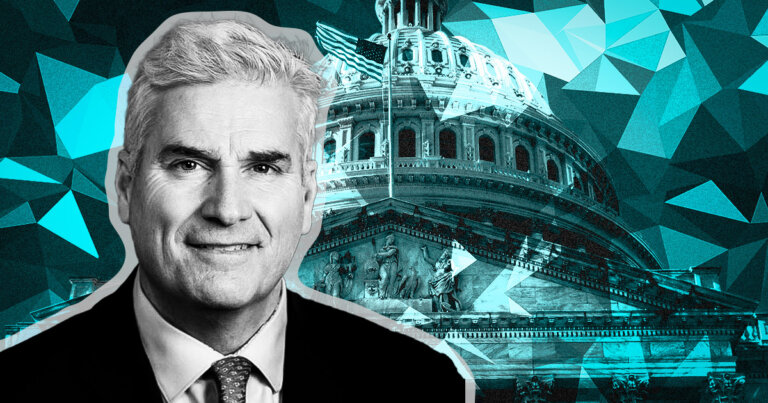 Rep. Tom Emmer introduces anti-CBDC bill
Rep. Tom Emmer introduces anti-CBDC bill Rep. Tom Emmer introduces anti-CBDC bill
The bill aims to protect user privacy and has gained support from Republican lawmakers.

Eric Connolly, House Creative Services. Public Domain
Congress member Tom Emmer (R-Minn.) introduced a bill on Feb. 22 that aims to prevent the U.S. Federal Reserve from providing a CBDC to individual retail users.
Emmer wrote on Twitter:
“Any digital version of the dollar must uphold our American values of privacy, individual sovereignty, and free market competitiveness. Anything less opens the door to the development of a dangerous surveillance tool.”
Though the bill nominally is meant to protect privacy, it will likely prevent the U.S. Federal Reserve from issuing a central bank digital currency (CBDC) in a broader sense.
Emmer said that the bill “prohibits the Fed from issuing a CBDC directly to anyone.” On Jan. 12, a statement regarding a shorter version of the bill more explicitly declared that the text aims to stop Federal Reserve from issuing a CBDC “to individuals.”
Today’s bill also expands on the January version in two ways. It now aims to prevent the Federal Reserve from using a CBDC to implement monetary policy and control the economy. It also aims to require the Federal Reserve to make its CBDC projects transparent through consultations with reserve banks and quarterly reports.
Emmer said that the bill is supported by at least nine other Republican lawmakers.
The partisan nature of the bill appears to be linked to public sentiment: blanket objections toward CBDCs have recently become a right-wing talking point.
Privacy issues are nevertheless a concern for crypto users of all political leanings. Because CBDCs are issued and circulated on a centralized and permissioned system, any CBDC would necessarily give the U.S. government greater control over user funds and greater surveillance capabilities than a public blockchain like Bitcoin.
The U.S. Federal Reserve has no definite plans to create a CBDC. The government body published a report in January 2022 suggesting that research is needed. Individual reserve banks, including those in Boston and New York are now involved in said research.










































































































